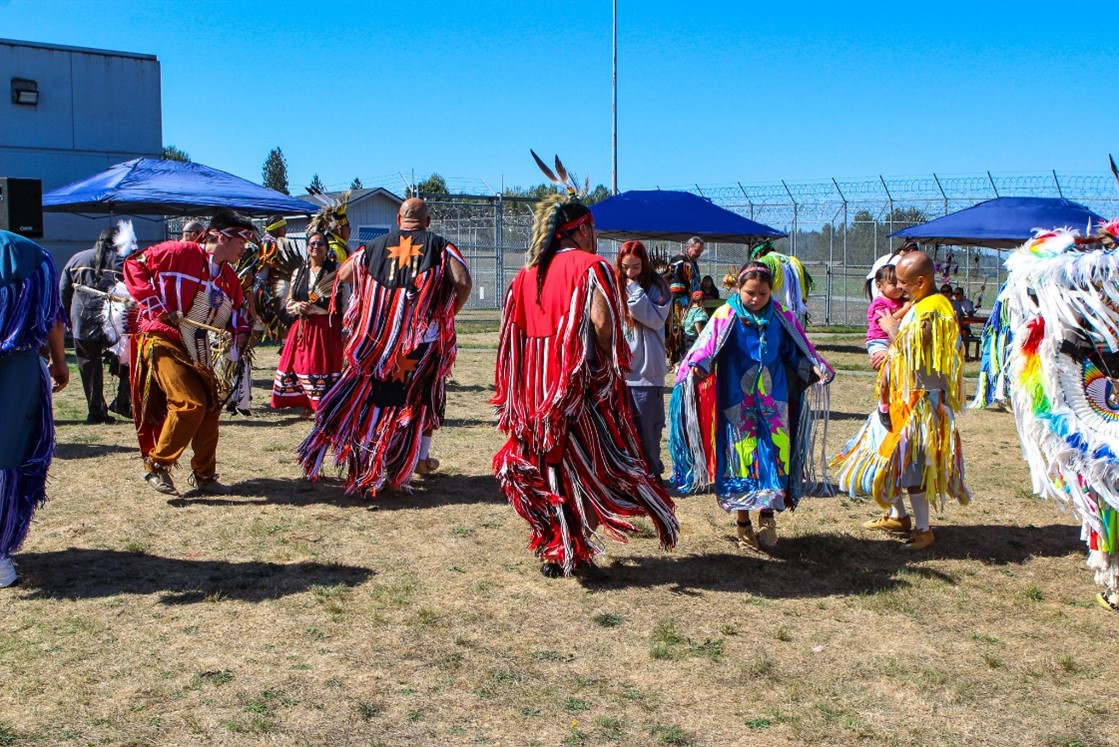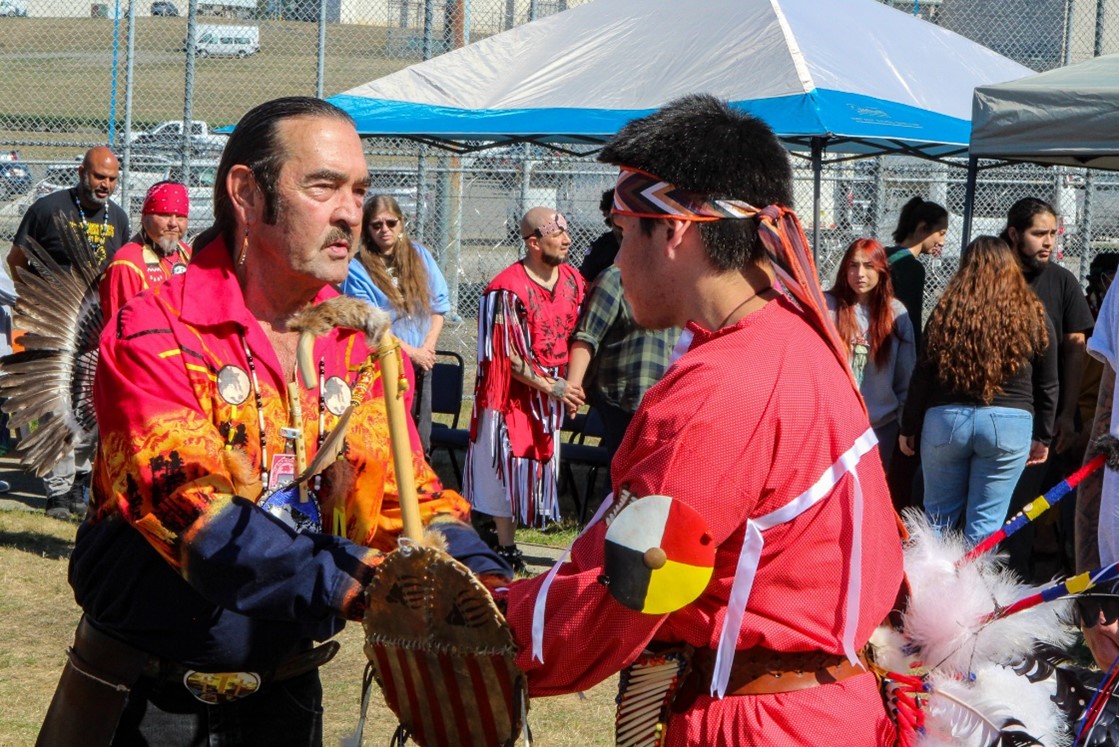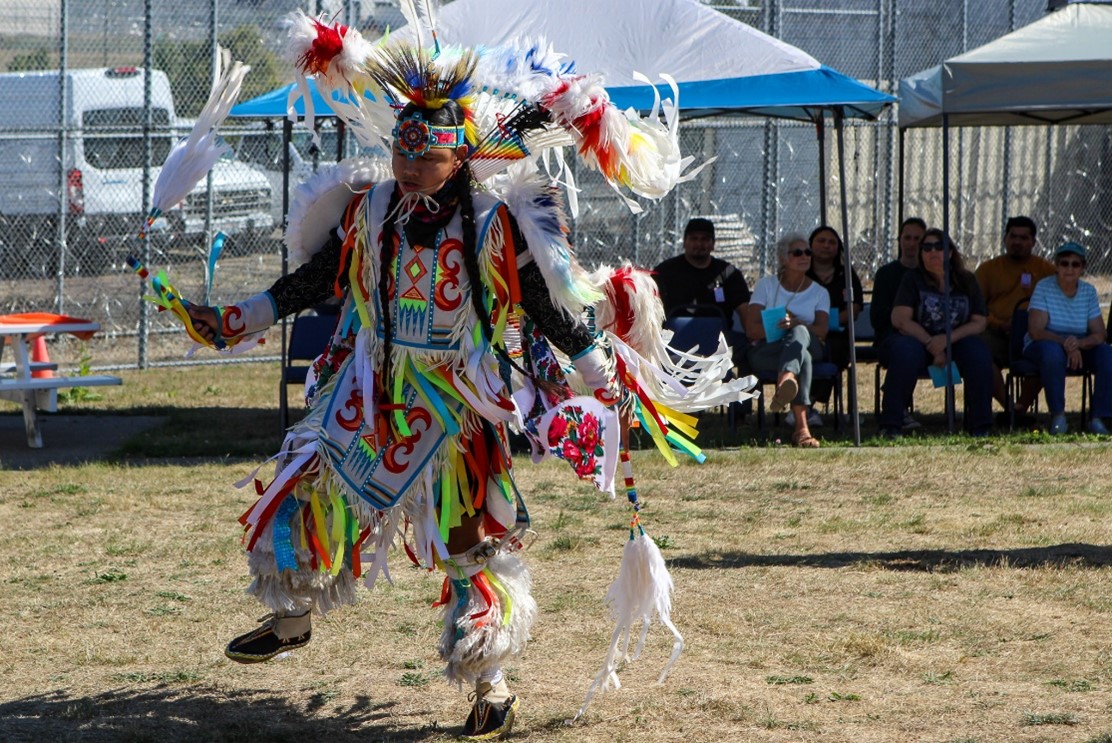Powwows Celebrate Culture, Aim to Reduce Recidivism
October 11, 2023
By Brendan Baptiste (email) Communications Office
Participants dance together at the powwow. (Photo courtesy of Chris Wright, Communications Office)
The prison system in the United States has often been criticized for its high recidivism rates, the percentage of incarcerated individuals return to prison within a few years of their release. Among the communities most affected by this cycle are Native Americans. However, in Washington State, an age-old tradition is offering a unique solution to this challenge: powwows. These traditional gatherings are being utilized within the prison system to help reduce recidivism rates.
Historically, Native Americans have faced systemic marginalization, leading to a myriad of disparities. In Washington State, Native Americans represent a disproportionate percentage of the inmate population compared to their representation in the general populace. The factors leading to this discrepancy are multifaceted, and nonprofit organizations such as Huy Cares and Unkitawa, are stepping up by utilizing traditional practices to help heal, educate and rehabilitate through ceremony, art and culture.
One tradition that has seen a reemergence in Washington State prisons after COVID restrictions were lifted in 2022 are powwows. These are gatherings where Native American tribes come together to celebrate their shared cultural heritage through music, dance, and other traditional activities. They play a vital role in strengthening the community bonds and ensuring the transmission of traditions from one generation to another. More importantly, powwows offer a sense of belonging and identity.
All Washington State prisons have recognized the importance of cultural identity in rehabilitation. By hosting powwows, they provide the incarcerated an opportunity to reconnect with their heritage. For some, these gatherings mark the first time a connection has been made to their culture. The rituals, music, and dances performed during powwows often have spiritual significance. Engaging in these activities allows incarcerated to embark on a journey of self-discovery, healing, and reflection.
Powwows in prisons often see participation from external tribal members and elders. This interaction fosters a sense of community support, making incarcerated individuals feel less isolated and more connected to positive influences outside prison walls. While organizing and participating in these events allows for the development of leadership, planning, and communication skills, these skills are beneficial for their reintegration into society post-release. The positive environment of powwows can also reduce tensions within prisons. Incarcerated individuals who participate often report improved relationships with their peers and prison staff.
There is hope that those who regularly participate in powwows and other cultural activities are less likely to reoffend upon release. The thought behind this is multifaceted: the combination of spiritual healing, skill development, community support, and an enhanced sense of cultural identity provides a strong foundation for successful reintegration into society.
Cultural preservation and reconnection can play a significant role in rehabilitation. The implementation of powwows in Washington State prisons serves as a testament to the power of tradition in healing, reforming, and reintegrating individuals back into society. As we continue to seek solutions for the challenges within our justice system, looking towards age-old traditions like powwows might just be the key to forging a path towards genuine rehabilitation and reduced recidivism.
Visit the Tribal Relations page for more information and the schedule for future powwows.


